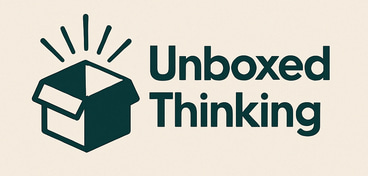Quiet Bridges – Reflections from an Introvert on Unity Without an Enemy
Can we build unity without a common enemy? In this reflective piece, I explore how introversion, judgment, and curiosity intersect — and how quiet efforts to understand others might be the key to bridging deep divides. A personal take on empathy, discomfort, and the power of listening.
Oliver
4/23/20252 min read


It’s always struck me how easily people rally around a common enemy.
Whether it’s a politician, a corporation, a system, or even a vague concept like “the media” or “wokeness,” having something or someone to oppose seems to activate our deepest instincts for solidarity.
But what happens when there’s no clear enemy? Or worse, when we start turning each other into the enemy because we need that rallying point so badly?
I’ve been thinking about this a lot lately — the idea of unity, but without the need to draw a line between “us” and “them.” Can we build connection without conflict? What would it take?
I don’t have a full answer. But I keep coming back to the small, quiet things.
The kind of unity that doesn’t make headlines. The kind that happens in kitchens and book clubs, on park benches and Reddit threads — wherever two people manage to listen to each other without trying to win.
As an introvert, I tend to avoid loud debates and big group conversations. I don’t thrive in combative spaces, even if they’re well-intentioned. But I do value connection — deeply. And I’ve started wondering if people like me, the quieter ones, might have something to contribute to this elusive idea of unity.
Maybe our strength isn’t in rallying troops or crafting arguments.
Maybe it’s in the quiet bridges we build when we reach out to someone unexpected. When we ask a question we don’t already know the answer to. When we choose curiosity over certainty.
I like to think of myself as open-minded. I want to be open-minded. But if I'm being honest, that wasn’t my default programming.
Growing up, everything was black and white. Good and bad. Truth and lies. And that rigid framework didn't exactly come with a built-in respect for nuance. As a result, I developed a pretty judgmental lens — not just toward people who were "outside," but even more so toward those who held views that clashed with mine.
That judgmental reflex still lives in me. And I think it’s part of what shaped my introversion, or at least my social caution. I’ve often found myself retreating instead of engaging when someone expresses a perspective that feels extreme or just plain baffling to me. The knee-jerk reaction is to dismiss it as ignorance or absurdity.
But building bridges — especially the quiet ones — means pushing past that reflex. It takes effort to move from “What the hell are they thinking?” to “What life experience brought them here?” It takes humility to step outside my mental fortress and ask real questions. To listen, not with the goal of changing their mind, but with the hope of understanding. And maybe, just maybe, finding a sliver of common ground.
I don’t think we need to all agree to get along. But I do think we need more people who are willing to pause before judging, who are curious enough to wonder how someone came to believe what they do — even if we strongly disagree.
Maybe that’s how unity starts. Not with a speech or a banner. But with a conversation. A moment of grace. A willingness to stay in the discomfort just a little longer, to see what might grow there.
Quiet bridges aren’t flashy. But they might be exactly what we need.
